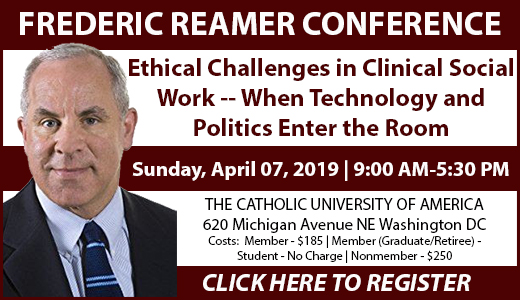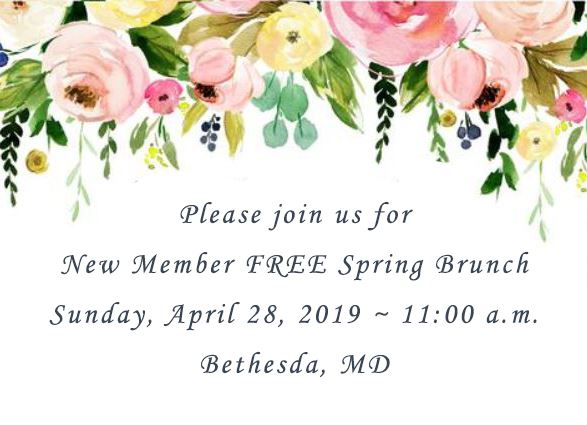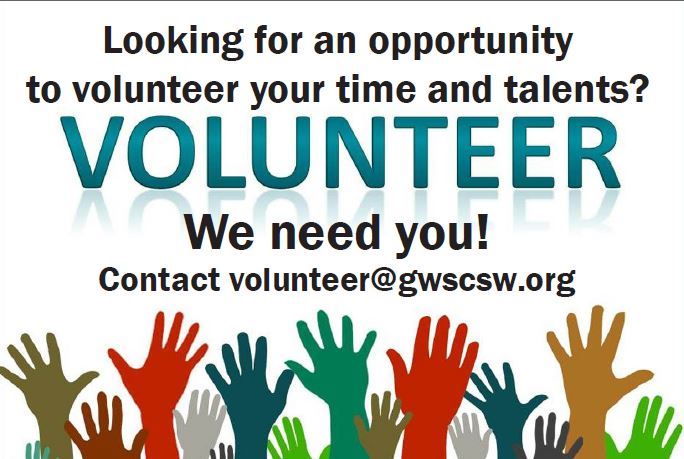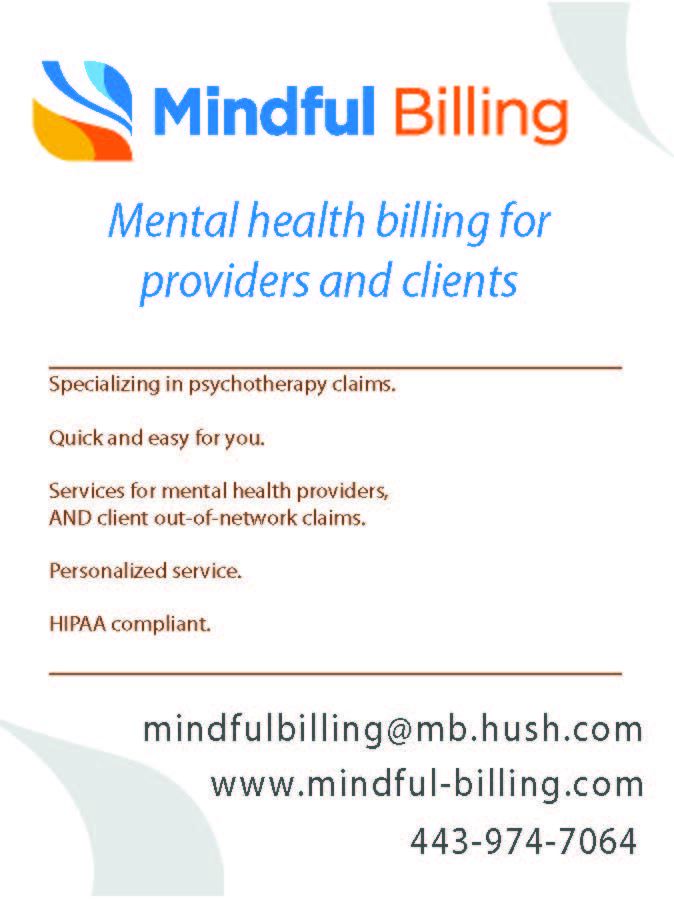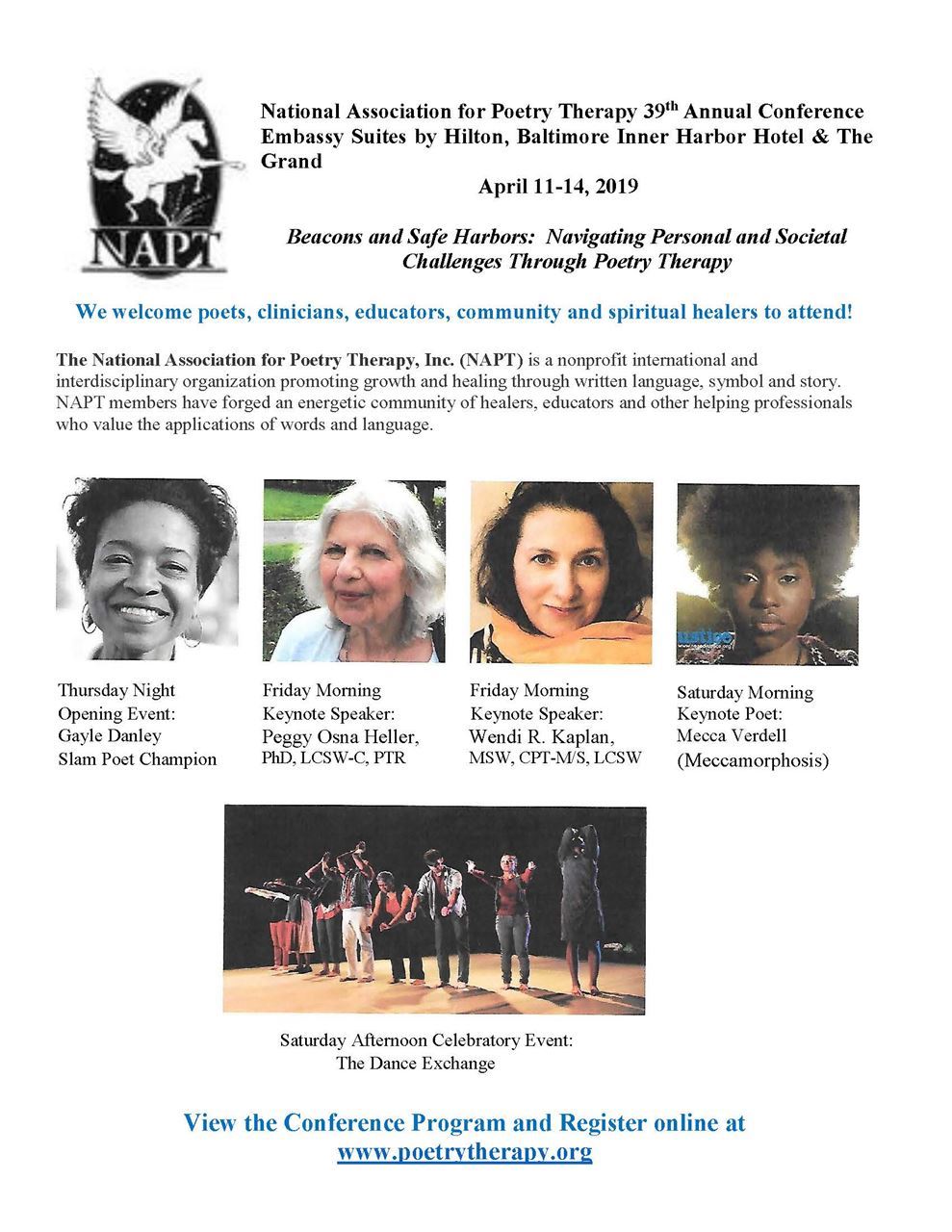In This Issue | MARCH 2019
President's Message Poetry: Appreciating Mary Oliver | Upcoming events
* Additional events will update as they are added to the calendar |
President's Message
Mary Moore
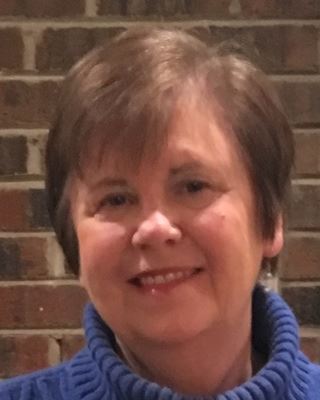
As we roll into 2019, I would like to provide a “State of the Society” newsletter article for you. In general, we are doing quite well. Last year at this time we were having a crisis of leadership. We didn’t have new officers lined up to replace the outgoing ones and there was an important unfilled director position and a few unfilled committee chair positions going into the new year (which starts for us in July). Due to the work of several committed Board members, and the willingness of member volunteers, we are now in very good shape. All officer, director and committee chair positions were filled, and the Society is breathing a breath of fresh air with many new volunteers on the board. Thank you everyone who stepped up to keep our society going.
The Education Committee is now being headed by Susan Post. Steve Wechsler had to step down due to increased work commitments. Thank you, Steve, for heading this area for the past 2 years. Susan is a past President and has stayed very involved with leadership. She is working with the new Continuing Education chair, Leila Jelvani; they are busy recruiting workshop leaders for the coming year. If you have presented workshops in the past, or would like to, please contact Leila or Susan. Help is also needed in reading proposals. Brown Bag events are going strong and are being coordinated by Robin Seiler and Amy Johnson in MD/DC and by Shauna Alonge and Beth Pascoe in VA. In particular we would like to see more CE events and Brown Bag events in Virginia, so if you are a Virginia member, please contact the appropriate Education Committee member if you are interested in hosting a Brown Bag or presenting a CE Workshop.
The Community Branch was headed by Alyce Louise Bertsche, who brought extensive organizational experience to the position. One current project she and the Membership Committee were working on is reviewing the membership levels. They continue to give fantastic New Member Brunches. If you have never been to one of these, feel free to come. You don’t have to be a new member! Thank you, Cindy Crane, for offering your lovely home for these brunches again and again. The Wine and Cheese events, chaired by Erica Greenspan, are a great way to network with other members; keep an eye out on the website for one near you! The Private Practice Mentor Group has been revived by Cindy Crane. This is a great support and networking group which helps members move into private practice or strategize challenges in private practice.
Nancy Harris continues to connect Mentors and Mentees, having made 32 matches last year. This is a great opportunity as a mentor to help new members and as a mentee, obtain valuable guidance. Please volunteer to be a mentor if you can; it is very rewarding and you can set limits on how often you meet and the level of involvement you are able to provide. Also, Nancy has indicated that if she had another committee member to help, she could match more mentors and mentees. We just completed our membership renewal this October and our membership is as strong as ever – over 800 members. The Annual Dinner is now being organized by Beverly Magida and Nancy Harris – it will be held at River Road Unitarian again, save the date - June 2.
Our new Vice President, Chrissy Wallace, previously a Co-chair of the Early Career Committee, is focusing many of her efforts on promoting early career programs and initiatives within the society. As the new Chair of the University Liaisons Committee, she is supporting liaisons in their aim to build relationships with the local schools of social work and to encourage current students and recent graduates to join the society. She is also recruiting student representatives for the board, which we have had in the past, and will be leading the effort to create a reduced-fee supervision list as a resource for society members. The current Early Career Committee Co-chairs, Katie Smeltz and Karin Lee, are exploring the idea of co-planning events with the Wine and Cheese and Legislation and Advocacy Committees in order to facilitate early career members’ involvement with well-established segments of our society.
Our Legislative and Advocacy branch is currently headed by Judy Gallant. She, along with the committee chairs, organize the informative annual Legislation and Advocacy Luncheon, which in November presented a panel discussion about how laws impacting our profession develop differently in each of the jurisdictions we cover. The Committees continue to address licensing issues, advocating for clinical social workers to be written into regulations that still only permit psychologists and psychiatrists to evaluate people under certain circumstances, mental health care in prisons, and the list goes on. Committee chairs are Margot Aronson in DC, Judy Ratliff in Virginia and Judy Gallant for Maryland. These members do a lot for the Society and the profession in general, and each has been in their L&A leadership positions for many years. Margot advocates for us with the DC City Council and the DC Board of Social Work, along with serving on committees in the city to represent mental health providers; Judy Gallant works with our lobbying firm, Schwartz, Metz and Wise, PA, for Maryland, along with legislators and regulatory personnel; and Judy Ratliff, in addition to meeting with legislators, attends meetings of the Board of the Virginia Clinical Society and with our shared lobbyist in Richmond, Sue Rowland, coordinating our joint strategies with our peers in the southern part of the state. Each of these stalwart women has expressed their need to retire from their positions in the near future, but are also happy to work closely for months with those interested in learning the ropes. Additional committee members are the lifeblood to continue this important part of our Society; members are currently needed to help with reading legislation and giving their input. It’s not that hard, really! And…It will be very appreciated.
Kate Rossier heads the Communications Branch. She is a past President and brings vivacious energy to this role. She has recently changed the way the newsletter is delivered electronically so hopefully it will be read more. (We noticed a drop in readership when we added the online version.) Those who have opted in for the printed version will still receive it. There is an effort ongoing to revise the website to be more user-friendly, including the Therapist Finder, Early Career and L&A areas. The printed member directory is currently being put together, as well as the online member directory. If you have not yet, please review your profile on our website so that your information will be up-to-date; there are a few new questions. Nancy Pines is our new newsletter editor and is doing a great job. Thank you, Nancy!
The Conferences Committee, headed by Dolores Paulson, put on a very successful Kassabian Conference in November and is working on preparations for the Reamer Conference in April. This is the largest GWSCSW event of the year and is always a provocative ethics conference with Dr. Frederic Reamer. Offering 6 Category 1 ethics CEUs, it allows us all to meet ethics and general continuing education requirements.
The Retirement groups, headed by Grace Lebow, have been very successful, and keep growing. I have noticed additional grass roots groups springing up via the listserv, for additional career period categories. This is a great example of how the Society can be of use to us.
If I left anyone out, please forgive me. I am grateful to Steve Szopa, our immediate past president, for being at almost every meeting and being very available to me for questions. I did not have the opportunity to be vice president or even on the executive committee before stepping into the president role, so he, and my advisors, Kate Rossier and Susan Post, have been invaluable. I also want to thank Donna Dietz, our Administrator, for her support of the Board and membership.
If you want to contact any of the people mentioned in this article, the entire Board contact list is under “Society Contacts” at the top of the Home page of the GWSCSW.org website. Please let us know if you would like to volunteer and/or offer input.
 POSTING TO THE GWSCSW LISTSERV - To post to this group, send email to: listserv-gwscsw@googlegroups.com
POSTING TO THE GWSCSW LISTSERV - To post to this group, send email to: listserv-gwscsw@googlegroups.com
If you are not on the listserv, contact admin@gwscsw.org
Why Join a Retirement Group? – Here’s Why
Marci Solomon, GWSCSW Past President
 In November 2017, our Retirement Group met for the first time – nine women, ages 62-82. Only one was actively in the termination phase of her practice, and without a medical trigger. Everyone else was there because she thought it would be wise to think about the issues, but no one had a real plan. I was the only one with a sense of urgency' as I had been newly diagnosed with a serious progressive condition. When I approached Grace Lebow, the coordinator of the Retirement groups, she informed me that a collection of individuals was already in the wings waiting for someone to emerge as leader. Given my sense of urgency, I agreed to serve as leader.
In November 2017, our Retirement Group met for the first time – nine women, ages 62-82. Only one was actively in the termination phase of her practice, and without a medical trigger. Everyone else was there because she thought it would be wise to think about the issues, but no one had a real plan. I was the only one with a sense of urgency' as I had been newly diagnosed with a serious progressive condition. When I approached Grace Lebow, the coordinator of the Retirement groups, she informed me that a collection of individuals was already in the wings waiting for someone to emerge as leader. Given my sense of urgency, I agreed to serve as leader.
We wasted no time. Grace got us started and we have met monthly since then, for a bit more than a year. The twists and turns that our individual and group lives and our practices have taken could not have been predicted. Two of our members, coincidentally the two eldest but among those who had originally been most intent on maintaining the honor and privilege of the clinical work, had major unforeseen medical challenges, such that they were compelled to close their practices in less-than-desirable time frames. The one person who had already announced her impending retirement did in fact retire. One person, coincidentally the youngest, left the area and the group. One recently announced her retirement to patients. One is considering moving her home and cutting back her practice a bit. One has moved offices and from a principal to a subletter. And our one member for whom clinical social work was a second career – she is watching, listening, and appreciating the attention that she garners as the shy member of the group. And I, the only one with a sense of urgency, have been stabilized medically and plan to cut back to a more part-time practice rather than fully retire.
When asked to submit a statement of personal meaning for this Clinical Society newsletter, our group members wrote about their appreciation for the support offered in making the decision, however ambivalent, to retire; the thought that members give to patients as well as to practitioners; the discussions of transitions and their implications; and the resilience of group members in the face of life’s adversities. One wrote that it has been heartening, empowering and comforting to see the many different forms the road to retirement can take. One of our colleagues, whose retirement was unplanned wrote:
“As I have reflected on the group from day one to the present, I realize that for me it offered a safe place with warm, thoughtful words, ideas, and practical assistance, which buoyed my spirits over the course of a difficult year. An oasis in the desert!! I took in wise advice and encouragement as I adjusted to dramatic changes in my overall health. I feel grateful to be a member of this group.”
And from our dear, superbly thoughtful and articulate Audrey Walker:
“To be able to explore the many ethical, emotional, intellectual and pragmatic issues related to retirement with such a professionally committed, intelligent, kind group of women has been so meaningful to me. In the group, I was at first exploring and declaring my commitment to continuing with my practice. However, I then learned that I had a virulent form of cancer that required immediate attention. Combined with my advanced age, I quickly realized that I had to close my practice in an undesirable and compromised time frame. I gained much wisdom and pragmatism from my group colleagues, and I did it…closed my practice as best and as professionally responsibly as I could…with lots of help from treasured colleagues. I am grateful that I was able to do so and hope to write about this in more detail. I cannot begin to express how sensitively, pragmatically, and kindly this group has lent their ongoing support to me. I believe this enabled me to make the best decisions for my clients and myself under the circumstances and that that “holding” process contributed as well to my healing recovery. Marcie Solomon’s facilitating leadership contributed/contributes greatly to the cohesion of our group. She set a tone of authenticity that contributed to group cohesion and trust. She opens her creatively art-filled, plant-filled, dog-welcoming home to us each month and offers wonderfully warming early morning treats. We are fortunate. This is a remarkable group of clinicians and contributes to my sense of celebrating being a member of this social work profession. Yes, we are fortunate to have one another.”
We are all grateful – for each other, the process, Grace Lebow and the Clinical Society.
"When I joined GWSCSW and since then, I have formed extraordinary friendships, established a professional network, and found the best resource for learning and staying current. I think association membership and activity is a cornerstone of one's professional life." ~ Long-time GWSCSW Member
Learn how to get more out of your membership! If you've joined the Society in the past few years but have never been to a New Member Brunch, please come join us - we'd love to meet you! FREE EVENT |
dancer and couple therapist applies lessons from the ballroom to everyday relating

Sheri A. Rosenfeld
As I delved deeper and deeper into the ballroom competition world with my partner, and delved deeper into the psychotherapy of couples I worked with as a therapist, I saw so many important parallels. Often when I was listening to a couple in therapy, I would liken their concerns to what it is like to be in a ballroom partnership. Whether or not I actually described the parallels to the couple in therapy, they were always there helpfully in the back of my mind.
To set the context, let’s review a list of basic instructions from a dance teacher to a partner. Each instruction embodies a principle for for achieving a successful dance partnership. I relate the dancing couple in the ballroom to the loving couple in everyday life, as the bodily metaphors translate to the couple's state of mind. So let’s take a look at that list, and then I will explore what we can learn from the first instruction alone.
My teacher’s instructions
- Wait for me.
- When I reach my hand to you, then you will know that I am ready.
- Be aware that there is your space, and there is my space. Do not move into my space.
- As we meet, line up your right side with my left side so that we are connected
- Let me know that we are attached but don’t lean on me so heavily that I cannot move.
- Our knees and feet should move in unison.
- Hold your own body weight but give me your shoulder so I can put my hand in that shoulder blade and you can feel secure.
- You are always in charge of your own body but relax into me and allow me to lead you.
- Relax. Let go. If you muscle your way through then we cannot move in unison and you are then doing it alone.
- Wait for my lead -- it will help you know where you are going or expected to go.
- Look into my eyes and feel the palm of my hand in yours -- it will let you know if I have to make a sudden change, and without words we can successfully navigate together.
- I will watch over you and protect you from harm, and if you see something coming my way, please do the same.
- Move out of my way as we move but listen to my body.
- I will get out of your way when you need to move past me; but we need to find each other immediately after.
Applying the lessons to couple relationships
Following these ballroom dance instructions from the teacher/leader to the student/follower, my partner and I will become a sensitively attuned pair. Although these principles derive from the ballroom, they apply as well to the therapeutic relationship and to everyday life within a couple relationship.
A couple enters my therapy office in great struggle. The husband is feeling lost in the relationship. His desire for his wife, he feels, is not equally met. They live apart for some parts of the year and together for other parts. His sleep is affected, and so is his health. He feels torn between acquiescing to all her needs and losing an important part of himself if he does. She longs as much as he does for a deep connection. But she is torn between wanting to move away from her home town to live with him and being afraid of losing part of herself. She struggles with their communication style, and wonders if she is being heard or taken in. He feels he is not listened to or responded to. Nevertheless they make love every night.
As I sit with them, I am struck by the lack of rhythm in their way of relating that takes each one off balance and by the fear of losing space while the other encroaches if they are too connected. But then there is the juxtaposition of the nightly lovemaking. How can I account for that?
And then I have a vision of myself ballroom dancing. As I move with my partner on the dance floor, I see the look in his eyes signaling me that someone is coming up behind me. I feel the light squeeze of his hand as he leads me into a spin but stops me mid-spin in order to avoid the crash of two couples. I realize at that moment that what has happened between my partner and me is what I feel is missing in the couple sitting in my office. Where is the body language? Where is the knowing glance? Where is the metaphorical squeeze? And then it dawns on me that perhaps these signs are there between the couple but they are misfiring and being misread. Perhaps the body language is interpreted in a malevolent way rather than received as a benign communication. In this case, maybe the glance or the metaphorical squeeze operates as a trigger for a feeling of distrust and expectation of harm, experienced in a past intimate relationship or during the earliest years with the mother or father relationship. What then becomes of that look and touch? It forms a toxic, stuck pattern of response. How can this couple move back into the rhythm of the dance? How can I help them move in unison but not lean on each other so much that they hinder their movement? How does one partner get quiet enough to hear the other’s body and understand his rhythm, not just his/her own?
Once again, I move to the dance floor in my mind. I notice that when I am dancing, I hear the music and feel the beating of the drum, but I am also aware of my body in space and of his body in action. There is no greater sensation than two bodies in complete unison, moving as one body. How do we translate this to help a couple make a deep connection in everyday life?
I note to the couple that more words pass between them than is necessary. I ask them to imagine moving together on a dance floor, holding each other close but not tight. I ask them to imagine what would happen if they could not speak but needed to direct each other, to send a signal of either distress or joy but only with their eyes and the touch of their hands? They stop for a moment to think. The room becomes quiet and the air thinner. I watch as their bodies begin to relax, their muscle tension softens, their facial expressions loosen. They look at each other and gaze for a few moments. Something is being transferred to the other which will, hopefully, be imprinted in the body as a warm sensation.
Words become tangled in the mind, and the mind takes over to where the body no longer can feel. If we concentrate on the two bodies in communication, bodily connection moves to mental attunement. There is a delicate balance of body and mind within a couple. It is at this point of balance that we as therapists have the leverage to change the couple’s dynamics. It is here that a couple can find the change they need to become a creative couple.
Sheri A. Rosenfeld is a couple and family psychotherapist . Sheri had a private practice in Washington, DC for 15 years. Sheri holds the World and United States Champion title in Ballroom Dancing and travels the world with her partners. She is in currently writing a book, from which this is an excerpt, about her unique insights into couple relationships that she has gleaned from her dance partnerships.
Legislation & Advocacy | Federal
Laura Groshong, LICSW, Director, Policy and Practice
[These are the comments made by CSWA on the Department of Education proposed rule which would substantially weaken Title IX protections for women subjected to sexual harassment on college campuses. ~LWG]
January 30, 2019
Comments Re: Proposed Rule regarding Nondiscrimination on the Basis of Sex in Education Programs or Activities Receiving Federal Financial Assistance
The Clinical Social Work Association strongly objects to this rule as currently proposed.
Although we applaud the Department’s effort to provide clear and transparent regulations for educational institutions, we have major concerns about the rollback of guidelines designed to support traumatized victims of sexual harassment and/or assault who might otherwise be registering valid complaints.
Standard of Evidence
A primary issue is that, while the proposed regulations allow either a “preponderance of evidence” standard or the much higher standard of “clear and convincing evidence” in determining whether or not harassment has occurred and is actionable, considerable leeway is given to the educational institution to decide which standard to apply.
“Clear and convincing evidence” has proven to be an almost impossible standard to meet in harassment cases, as it is closely tied to the prevailing assumption before Title IX was passed in 1972, of women being sexually available to men even without consent. In fact, even after Title IX, most educational institutions and state laws held to the old standards; note that only 15 cases of sexual harassment were prosecuted by the Department of Education up to 2011, whereas between 2011 and today, there have been 150 (“DeVos Proposes Overhaul to Campus Sexual Misconduct”, Newsday , 11/16/18).
If there is a concern that men are being treated unfairly under the preponderance standard, then the Department might reasonably provide guidance as to how to apply the preponderance standard fairly. It should be noted that, according to a study conducted at the University of Massachusetts, 90% of all sexual harassment cases have been found to be true, with the complaints filed that are false ranging from 2-10% (Lisak, D., et.al., “False Allegations of Sexual Assault: An Analysis of Ten Years of Reported Cases”, Violence Against Women, Sage Publications, 16(12):1318-34).
We also do not want to ignore the appalling fact that just last year Larry Nassar of Michigan State University, in affiliation with USA Gymnastics, was found guilty of having violated over 350 young girls and women over a period of years.
Investigations of a Formal Complaint
The Clinical Social Work Association represents the interests of the 250,000 Licensed Clinical Social Workers, the largest group of providers of health, mental health and social services across our nation. Working in clinics, schools, hospitals, welfare agencies, non-profits, and private practices, LCSWs have extensive experience with individuals harmed by sexual harassment and/or assault, with highly emotional court cases involving complicated relationships, and with the excruciatingly painful trauma associated with sexual harassment, assault, and abuse.
In our review of Investigations, in Section 106.45(b)(3), we are deeply troubled by the proposed rule’s discussion of cross-examination as part of the investigation of a formal complaint. That cross-examination might in some cases need to be a part of the hearing is understood, but not all. The Department’s attempt to achieve balance by insisting on cross examination fails, on multiple levels, to take into account the needs to protect and support the victim.
A significant body of information regarding the mental health and social needs of survivors has been developed in the past decade, and what seems to be lacking in the proposed rules is an effort to provide universities with a serious understanding of trauma and of what the victim might be experiencing as they determine how to develop their “fair” hearings. Indeed, we would urge that the rules directly address the university role in creating or continuing a climate hostile to complainants/victims.
As written, the proposed rules present investigation as basically a she-said/he-said inquiry with required cross-examination - yet even “protections” such as the separate room for cross-examination have the potential of re-traumatizing the victim, causing an almost inevitable chilling effect on the very act of reporting. As written, the rules introduce “supportive services” which might be provided to an individual involved in a case (counseling, etc.), but simply as options which may or may not be offered by the university, rather than recommendations as part of trauma-informed guidance.
Conclusion
Finally, there is no doubt that our society needs to do more to educate men and women about the importance of consent in sexual interactions, and to listen to both sides. But the aspects of this proposed rule that would return us to the days when women were rendered powerless after being victimized, and when powerful institutions could thrive while ignoring painful realities on their campuses, must be rejected.
Legislation & Advocacy | District of Columbia
Margot Aronson
Most of this issue’s DC legislation & advocacy report will focus on the DC Board of Social Work, as you will see below. However, social workers should be aware of two important concerns recently raised by DC Council committee chairs.
Council member Vincent Gray chairs the Council’s Committee on Health. He raised the issue of access to care at his last Committee meeting of 2018. It is not, he noted, that there is a shortage of health/mental health providers in the District as a whole, but that the shortage of providers in Wards 7 and 8 is extremely serious.
Many of the District’s most vulnerable residents live in these wards, and obtaining appointments and crossing the city to a practice in a different ward may mean several buses and more time than can be spared from work or family.
Council member David Grosso chairs the Committee on Education. He recently took part in a public panel presentation at the University of the District of Columbia Law School, focused on the effects of trauma on DC school children. In the handout package was a fact sheet defining trauma, with examples of traumatic events, signs of trauma in children ages 6 to 12, and the connection between trauma and academic performance. The following statistic may help us understand the depth of difficulty facing the schools: “…Nearly 50 percent of DC children and youth have experienced two or more adverse childhood experiences, or traumas.”
The Call to Action following the powerful panel discussion included steps we can all take, pushing for legislation "to make sure all public schools have trauma sensitive training" to provide mental health assessments for all students, with development of a mental health plan for any child whose assessment requires intervention or treatment, "to hold a citywide summit to present plans to address the causes of childhood trauma in DC."
These issues are ready-made for clinical social workers!
DC Board of Social Work Update
As I write, there are changes in the air. Over the past few months, GWSCSW members Cheryl Aguilar and Tamara Pincus have raised the issue of LGSWs being supervised in private practice settings to gain work experience to apply to their LICSW application. This has long been considered a violation of social work regulations in DC, as it has been in many states around the country (and emphatically so in Maryland). Apparently, however, the prohibition in DC has not been understood by all DC social workers, perhaps in large measure because the regulations as written are not particularly clear.
Maryland’s Board of Social Work recently made major revisions to its regulations, and now permits LGSWs in supervised private practice with some very specific limitations spelled out. Other states have moved in this direction as well.
At the same time, the DC Board, STILL lacking an LICSW as well as a BSW member, has been working to clarify and simplify regulations. So this fall, when LGSWs asked about the rules, they were told clearly and simply that LGSWs in private practice are not permitted. It was indeed clear and simple, but the result was that some social workers who had mistakenly believed the practice was acceptable already became outraged that there had been no notification of what they saw as a brand new policy.
What has happened, thanks to outspoken advocacy, organizing, negotiations, listening, and working toward solving the problem is a social work story to make us hopeful.
First, Cheryl and Tamara gained permission to present the issue at the November DC Board of Social Work open session. Our GWSCSW DC L&A committee member Adele Natter, who attends Board sessions with me, reported to the list-serve on that meeting: “Making the case for LGSWs working toward LICSW licensure in private practices, they communicated passionately about access to mental health services and about the stakes for clients, new social workers, supervisors and private practitioners. Afterwards, the Board went into closed session, and it was readily apparent that the fact that interested members of our organization and the public came to speak to the Board made a significant impact and would not be ignored.
Adele and I have found the Board to be thoughtful and in general, very collaborative. But it is crucial to remember that the Board’s mandate is TO PROTECT THE PUBLIC. That is a complex task, because at the same time, we social workers expect them to advance the profession. (Also bear in mind that they are unpaid volunteers, who don’t even get a free lunch or coffee on the day they serve, not to mention what they have to review, in between the monthly sessions.)
Next, Cheryl and the DC LGSWs in Private Practice Advocacy Committee (not a GWSCSW committee; not all are members of our Society) developed and circulated a petition for signatures. She spent time reviewing the issue with those of us with knowledge of the Board history, gaining a deeper understanding of the long held reasoning behind the prohibition.
A Step Forward at the January 2019 Meeting
On January 29th, the Board’s agenda provided time for six representatives of the committee to each make a brief presentation. Cheryl presented the petition, with more than 100 signatures. Then Board Chair Velva Spriggs, LICSW, offered an informal look at a policy the Board is now working on: clear guidance as to when and how LGSWs might be permitted to earn supervised hours toward the LICSW in a private practice setting. The document was in draft form; there must still be determinations of whether the size of a practice makes a difference, and whether a supervisor must be on the premises, and a variety of other such details.
This guidance document will not have a public comment period (a process that would take a very long time), but the Board welcomed comments sent by email. And by the time this newsletter is in your hands, the policy may be settled. Stay tuned!
CEU and License Renewal Notes
The current 2-year licensing cycle began on August 1, 2017, and will end on July 31, 2019 for all DC licensees. For this renewal period, the 40 hours of Continuing Education Units must include 6 hours of Ethics (face-to-face) and 2 hours of LGBTQ training (can be on-line). Only 12 hours of the total 40 can be online.
HIV training WILL NOT BE required for this or subsequent cycles. However, at some future renewal cycle, the Director of the Department of Health has plans to require ALL health professional licensees - not just social workers - to complete 4 hours of training in public health issues relevant to the District of Columbia. The topics to be covered by this training requirement have not yet been identified; details will be announced before the start of the 2-year cycle for which they will be required.
Present DC regulations require that all CEU training be provided by a Social Worker, a School of Social Work, an ASWB or NASW-approved CEU provider, or have a Social Worker participating in the planning of the presentation.
And here’s an FYI: The best place to check on the most current license and supervision expectations and requirements is the Board’s website (https://dchealth.dc.gov/service/social-work-licensing). If you have a question, call the Board: Mavis Azariah Armattoe, 202/442/4782, or email . When there’s confusion, sometimes Adele Natter and I can help clarify; we represent GWSCSW and CSWA at the Board’s monthly open session. The meeting is 10 AM on the 4th Monday of each month; please join us!
Margot Aronson, LICSW, chairs the GWSCSW L&A committee for DC. A past GWSCSW president, she has also served as newsletter editor and director of Legislation & Advocacy. Margot currently advocates on mental health and LCSW practice issues for us all at the national level as the Clinical Social Work Association Deputy Director for Policy and Practice.
Legislation & Advocacy | Maryland
Judy Gallant
In early January, the Maryland General Assembly started their annual 90-day legislative session. Also in January, Lt. Governor Rutherford announced $500 million of new funding in Maryland’s FY2019 budget for the opioid crisis and substance use disorder services, as well as an Executive Order signed by Governor Hogan creating a new Commission to study Mental and Behavioral Health.
We continue working in collaboration with our friends at the Maryland Behavioral Health Coalition at the MHA in supporting efforts to increase behavioral health funding in order to improve student outcomes in schools, as well as efforts to eliminate restrictions to medication-assisted treatment and other substance use treatment options and ensuring access where it is most needed, such as in Maryland correctional facilities. Additionally, we support their efforts to amend the proposed legislation to raise Maryland’s minimum wage to $15/hour to include a commensurate boost in funding for behavioral health resources. The additional State funding is necessary to support increasing reimbursement rates for community behavioral health workers. Over 260,000 Marylanders rely on the State’s public behavioral health system for their mental health and substance use treatment needs, and without the additional funding for this bill, Community Mental Health Centers could be forced to reduce or eliminate services.
Bill to promote trauma-informed approach in public schools
House Bill 256, State Department of Education-Guidelines on a Trauma-Informed Approach, is offering Maryland’s Legislature the opportunity to enact the kind of law that Margot outlined in her report, that DC Councilmember David Grasso is calling on DC to enact. The initiative proposed in the Maryland bill defines a “trauma informed approach” as “a method for understanding and responding to an individual with symptoms of chronic interpersonal trauma or traumatic stress,” and provides funding for a Trauma-Informed Schools Expansion Program. This would include developing a curriculum for intensively training teachers and staff in some schools on the trauma informed approach, which would “recognize the signs and symptoms of trauma in students, teachers and staff” (emphasis mine), ensure identification of those individuals who have experienced trauma, enable staff to learn the appropriate manner for responding to an individual who has experienced trauma and “actively resists retraumatizing a student teacher or staff member who has experienced trauma.” It is proposed as a pilot program, with mechanisms in place to assess results. I am impressed and pleased by the forward-thinking Maryland legislature on this matter.
“Red Flag” law
A “Red Flag” bill, also known as “Extreme Risk Protective Order (ERPO)” legislation, was passed in 2018 and became effective on October 1st. Passage of this bill was a part of Maryland’s response to the call for action on gun control. The law permits law enforcement, family members, and health professionals, including clinical social workers, to request a court order to prevent an individual who poses an immediate danger of causing personal injury from possessing a firearm on a temporary basis. Our lobbyist, Pam Metz Kasemeyer, informed us of a timely briefing she attended before the Judiciary Committee, which clarified that the law creates a framework to file a petition for an ERPO but does not create any obligation for a health care professional to do so. It is a tool that can now be utilized by law enforcement, family, other individuals, and health care providers, but does not require a health care provider to utilize this tool. Similarly, there is no liability associated with utilization or non-utilization of the petition process. For more complete information, you can view the fiscal and policy note on the legislation here: http://mgaleg.maryland.gov/2018RS/fnotes/bil_0002/hb1302.pdf.
We have an ethical responsibility to consider our decision-making process about whether to call police and/or petition the court to remove guns and whether this could potentially violate someone’s privacy or constitutional rights. These are important considerations for us to examine in utilizing this and other legal tools available to us, as we also weigh the potential to save lives. A GWSCSW CEU ethics workshop regarding some of these issues is being planned by Linda Friskey at a date yet to be determined.
Interested in any of these topics? Please contact Judy Gallant at judy.gallant@verizon.net or sign up online at our website to volunteer to help our legislative committee. We’re stronger working together.
Judy Gallant, LCSW-C, is the director of the Society’s Legislation & Advocacy program, as well as chair of the Maryland Clinical Social Work Coalition, our GWSCSW legislative committee in Maryland. She maintains a private practice in Silver Spring.
Legislation & Advocacy | Virginia
Judy Ratliff
IMPORTANT: VIRGINIA BOARD OF SOCIAL WORK'S CURRENT LICENSURE CHANGES AND REQUIREMENTS
Here is the most recent update on requirements for Continuing Education for social workers in Virginia. We still need 15 hours of continuing education per year, but even though you will have to renew your license on June 30, 2019, CEs will not be due until 2020. That means that you do not submit your CEs for 2019 and 2020 until 2020. No CEs are due when you renew your license in June, 2019. That includes 2 hours of Ethics due every two years, also in 2020.
Please note that in the future the number of Ethics CEs will increase to 6 hours, but it is not yet in the regulations. However, the Board of Social Work anticipates that it will be there by the next renewal date.
.Judy Ratliff, LCSW, is Chair of the Society’s Legislative Committee for Virginia. In addition to her years of GWSCSW service, Judy has served on the Fairfax County Long Term Care Coordinating Council and in Leadership Fairfax. She began her professional life as a medical social worker, has taught medical and social work students for the University of Maryland, and is currently in private practice in Fairfax.
POETRY: Appreciating Mary Oliver
Wendi R. Kaplan
 When it's over, I want to say: all my life I was a bride married to amazement. I was the bridegroom, taking the world into my arms.
When it's over, I want to say: all my life I was a bride married to amazement. I was the bridegroom, taking the world into my arms.
-Mary Oliver
I begin with one of the lines from my last writing. It was to Dr. Christine Blasey Ford and to all of us. Words do matter!
Indeed, words matter. The words we choose can make all the difference. They can soothe. They can challenge. They can sting. They can inspire.
And who has given us such a treasure trove of the most plain, the most delicious, the most simple, the most sparkling words? Mary Oliver! The beloved poet of the people.
She has especially given words to therapists and healers. I have been asking healers when they first heard a Mary Oliver poem. Several said that Mary Oliver is so much a part of them that they wonder, “When did I not know her?” One remembers her teacher, Dianne Connelly, at the Traditional Acupuncture Institute (now Maryland University of Integrative Health) reciting Mary Oliver over 25 years ago. Several therapists have remembered Tara Brach reading Mary Oliver poems in meditation programs. Others have kindly given me credit for introducing them to Mary Oliver. I chuckle as I remember trading Oliver poems with Tara Brach when we were studying years ago.
My first introduction to Oliver was sometime in 1990. I was at an Ira Progoff writing retreat. It was our first day and the facilitator read “Wild Geese” to us:
You do not have to be good.
You do not have to walk on your knees
for a hundred miles through the desert repenting.
You only have to let the soft animal of your body
love what it loves.
Tell me about despair, yours, and I will tell you mine.
Meanwhile the world goes on.
Meanwhile the sun and the clear pebbles of the rain
are moving across the landscapes,
over the prairies and the deep trees,
the mountains and the rivers.
Meanwhile the wild geese, high in the clean blue air,
are heading home again.
Whoever you are, no matter how lonely,
the world offers itself to your imagination,
calls to you like the wild geese, harsh and exciting -
over and over announcing your place
in the family of things.
I burst into tears of wonder. The words, the connection between all of us, nature, geese, humans — pierced something in me that broke me open in admiration, recognition, awe and a truth that resonated deeply.
I bought her book Dream Works immediately and read voraciously. A feast for my heart, a reminder of my lifelong relationship with poetry shone anew and a different perspective for my work as a therapist became clear. Although I had always brought poetry into my work with children, I had not done so as much with adults. Oliver’s poems inspired me to share poetry with adults and couples, even families. Which brought me to study and become certified in biblio/poetry therapy.
Mary Oliver has given us instructions for living such as:
Instructions for living a life. Pay attention. Be astonished. Tell about it.
and guide books about nature, humans and life. She has given us questions that we cherish.
Tell me, what is it you plan to do with your one wild and precious life?
Therapists, in sharing her words, her insights, her observations, and yes, her questions, invite clients to find their own words and questions. Thank goodness she has left these words of hers for all of us to consider and savor.
To live in this world
you must be able
to do three things:
to love what is mortal;
to hold it
against your bones knowing
your own life depends on it;
and, when the time comes to let it go,
to let it go.
(from “In Blackwater Woods”)
We will miss the poet who showed us the extraordinary in the ordinary. We can appreciate all that she left us including the reminder to take “the world into my arms.”
Please feel free to write me at wendi.kaplan@verizon.net
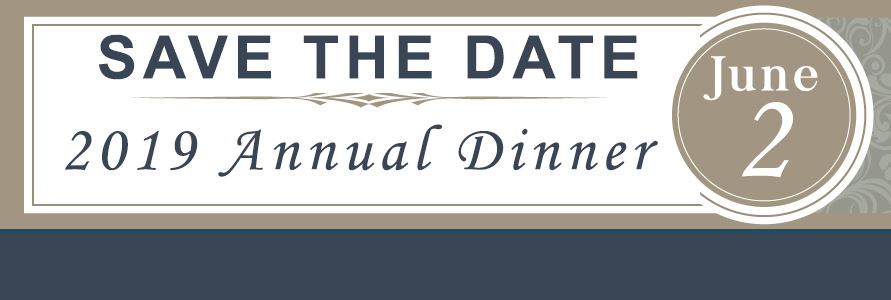
Communications Branch
Kate Rossier, Director of Communications | Email: kazrossier@hotmail.com
In the Communications Branch, we have been working to update various communications pieces - the quarterly newsletter, Directory, Therapist Finder, and website. Starting with the Newsletter, Donna Dietz (our administrator) has recently made the online version of our newsletter easier to find and more user-friendly in its format. Be sure to look at it, even if you get the print version! Nancy Pines, our editor, continues to do a wonderful job of soliciting articles and submissions, as well as editing them and working with Donna who then handles the graphic design aspects.
The 2019 Directory is now being assembled by Donna. We have made a couple of changes to streamline and make this more useful, the chief among these being that we will have an index in the back that lists therapists by city. We now have the Directory in both an online version and, for those who like the hard copy, a print version as well. As this newsletter goes to press, we hope that you all have updated your profiles, as this is the only way that we can have the correct information in the print versions. (Also remember that your profile gives the information that is also available for the Therapist Finder, an important tool for allowing clients to find you!)
We will be updating the Therapist Finder this spring. We are aware that some folks have had some frustrations with it, and we would welcome your comments as we begin this process. Please send me emails with your ideas and suggestions!
Last, Donna Dietz, Mary Moore, and I will be working this spring on an update of our website. We are wanting to update it’s look and make it ever more user-friendly. As always, we welcome your comments, suggestions, and help.
Education Branch
Susan Post, Acting Director of Education
The education committees are making plans for the spring and the coming year. In MD/DC. the brown bag committee is in the process of scheduling two gatherings in the coming months, on equine therapy (March 15) and implicit memory (April5). Stay tuned via the listserv and website. We have two new co-chairs for the VA brown bag committee: Beth Pascoe and Shauna Alonge. They will be working to bring programs of all kinds to VA, and hope that many of you Virginians will volunteer to present on your areas of interest and expertise. You will be hearing from them!
The continuing education committee, which focuses on Category I presentations, also has a new chair, Leila Jelvani. Leila has enormous enthusiasm and energy and we will all be working together to create a schedule of exciting CE workshops for the coming year. A number of programs are in the works for this spring, and you will be hearing about them soon! As soon as they are scheduled, you can see them on the calendar on the home page of the website. And you’ll receive notices from our administrator, Donna Dietz, via the listserv once they are open for registration.
As always, the continuing education branch urges speakers seasoned and not-so-seasoned to send proposals for programs that would be of interest to others. Our programs are intended not only to bring first class continuing education to social workers, but also to foster opportunity for our own members to become seasoned presenters. We have experienced mentors ready to help those who are new to presenting, so don’t be shy - now is the time to embark on the path of becoming an educator!
You can find information on presenting on our website, https://www.gwscsw.org/. There is also a template there for organizing proposals, and of course you may contact one of the CE chairs, who are listed below. Hoping to hear from you!
Susan Post, Acting Director of Education
susan.post@gmail.comLeila Jelvani, Chair, Continuing Education Committee
leila.jelvani@gmail.comAmy Johnson and Robin Seilor, Co-chairs, MD/DC Brown Bag Committee
amyswjohnson@gmail.com and rsseilerjr55@gmail.comBeth Pascoe and Shauna Alonge, Co-chairs, VA Brown Bag Committee
bethdpascoe@yahoo.com and salongelaw@gmail.com
UPCOMING EVENTS
Don't forget to look at our upcoming events. Several new workshops have recently been added to the calendar. Click on an event below to learn more about the program.
Spring 2019 Calendar
-
Monday, March 02, 2026 1:00 PMONLINE ZOOM
-
Friday, April 10, 2026 11:00 AMOnline ZOOM
Committee Reports
Continuing Education Committee
Patricia Demont | Leila Jelvani
cecommittee@gwscsw.org
The Continuing Education Committee is accepting proposals for Fall 2019 and Spring 2020. Do you have a topic that you know others are interested in learning about? Would you like to share your expertise? This is a great opportunity to highlight your experience while promoting your practice. For shorter presentations, consider offering a Brown Bag lunch topic, typically lasting 1 ½ hours.
Click here to submit a proposal. Once submitted, the proposal will be reviewed by the Education Chair and the Continuing Education Committee.
Diversity Committee
Amy Johnson
ajohnson@bigtreecounseling.org
Diversity Committee meetings will be restarting soon. We will be assessing progress on the recommendations that the Committee made to the Board last year. Another project in the planning phase is creating and distributing a brief survey to assess how welcoming and inclusive we are and to learn how we could do better. To that end, I am asking you to reach out to me and let me know if you have suggestions about how our Society could be more aware and responsive to people from all walks of life. As Vice President for two years and President for another two, I experienced Society leaders as aware, caring and dedicated to welcoming and empowering the full diversity of members. However, we all have room to grow and learn more about the wide array of human identities. Please feel free to email Steve Szopa at: steveszopa@gmail.com
In the future, the Diversity Committee is planning a variety of different features in this column. These include reports on articles and books that address topics about the human experience; special meet-up events and ongoing requests for feedback from Members like you. The Diversity Committee can help the Society best by soliciting observations and ideas that come from you, your observations and your frame of reference. The Committee and I look forward to hearing from you.
Early Career Committee
Karin Lee | Katie Smeltz
earlycareer@gwscsw.org
Early career members be on the lookout for the announcements for upcoming workshop called The First 3,000 Hours - this two part workshop developed for advanced year MSW students and early career social workers focusing on clinical social work. Target audiences are advanced year MSW students, LGSWs and clinical supervisors. Course material covers practical information about what new social workers will encounter during the first 3,000 hours of their career - from their graduation from a Master's Program in clinical social work until the attainment of their advanced clinical licensure. Participants may also sign up for and find usefulness in Part II, The 3,000th Hour and Beyond.
Legislation & Advocacy Committee
Judy Gallant
dirlegislation@gwscsw.org
A Hearty Welcome to Adele Natter! The Legislation and Advocacy Branch Welcomes Adele Natter as our new co-chair of our DC
L&A Committee, along with Margot Aronson!! Adele has been working alongside Margot for some time and we are absolutely delighted she is increasing her commitment to the Society in this way. Additional opportunities are available in Virginia and Maryland. Fame and fortune await! May we welcome you in this spot in a future newsletter? In different parts of this newsletter, you will see some of the many ways our branch has been working for you recently, including commenting on the efforts of the Trump Administration to change the Title IX Sexual Discrimination Law (both through separate CSWA and GWSCSW submissions), as well as responding to concerns about LGSWs being hired by private practices in DC and the DC Board of Social Workers needing to clarify law and regulations. Additionally, in response to the issue around the Maryland State Board of Education mentioned in the December newsletter and mentioned in Mary Moore’s “State of the Society” article elsewhere in this newsletter, I have been in touch with people in the BoE who are very willing to help get Maryland regulations re-written so that clinical social workers will be able to evaluate and recommend that a student would need an additional service, such as home and hospital accommodations.
See individual jurisdiction articles for the latest updates. Be sure to contact one of us with any questions or suggestions you might have, or to join one of the committees: in DC, Margot Aronson, malevin@erols.com; in Maryland, Judy Gallant, judy.gallant@verizon.net; and in Virginia, Judy Ratliff, jratliff48@hotmail.com. We look forward to hearing from you.
Membership Committee
Cindy Crane, Nancy Harris, Catherine Lowry
membership@gwscsw.org
The GWSCSW Membership committee is planning the Spring Brunch for Sunday, April 28th, 11-1. Anyone who has joined in the last 2 years is invited to come, as are all Board members…and any regular member who would like to meet the newer members. It is free, and we provide a beautiful brunch at the home of Cindy Crane. Hope to see many of you there! Please RSVP on the GWSCSW website.
Mentoring Committee
Nancy Harris
mentoring@gwscsw.org
The Mentor Program is always looking for new mentors to guide the newer social workers who are looking for guidance and help as they start their careers. You determine how much time you want to give; this is worked out with the mentee. For questions please contact Nancy Harris, coordinator of the Mentor Program at (301) 385-3375, or nlharris1214@gmail.com. Thank you for your support of this important benefit of GWSCSW membership!
Newsletter Committee
Nancy Pines
newsletter@gwscsw.org
Your newsletter welcomes ideas and articles about clinical social work and practice. We are also very interested in hearing from members who have specialized knowledge or adjunct therapy practices they want to share.
Please consider your own life experiences and how they may have affected how you practice. One of the things I love about our profession is how we are always learning. Why not share your expertise and life lessons with fellow members? Send an email with your story/article ideas to newsletter@gwscsw.org. Thanks!
Social Media Committee
Chana Lockerman
socialmedia@gwscsw.org
The Social Media Committee is excited to continue the work of sharing exciting content related to social work and mental health. We are continuing to update the GWSCSW Facebook page with articles. Please visit the page, like or comment on the posts. Let us know if you have an idea about how to make the page more relevant to YOU. We are working on getting more traffic to the Facebook page. Please like the page if you haven’t already, and share the page with your fellow colleagues! Feel free to email us at socialmedia@gwscsw.org if there is something you would like us to post about on the listserv. We are also available to field any personal questions you may have about your own social media pages and accounts. Contact Chana Lockerman at chana@rockcreekcounseling.com with any questions or suggestions for future Tech Tips columns.
Volunteer Committee
Beth Pascoe
volunteer@gwscsw.org
Tech Tips: tools for organizing financial data
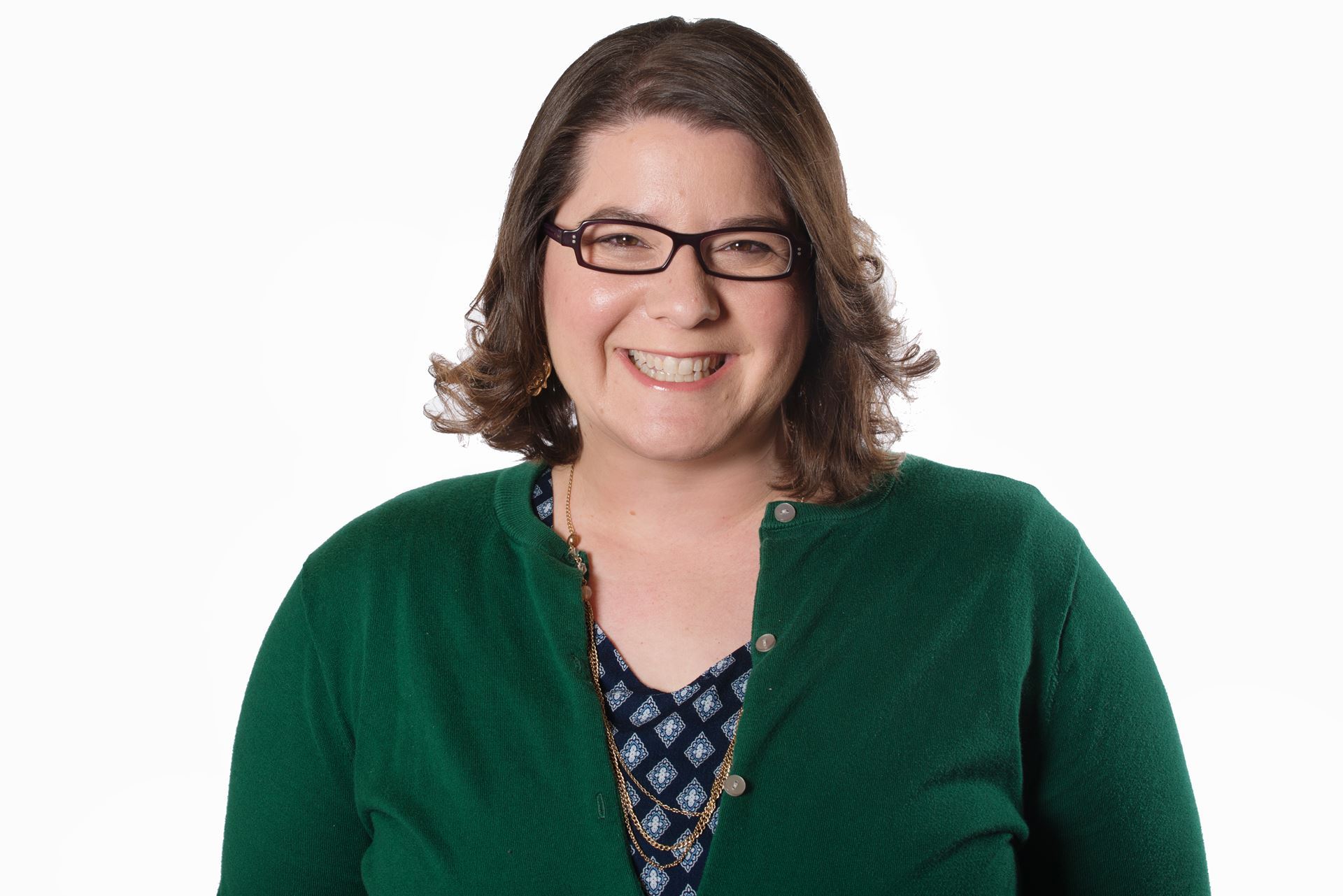 Chana Lockerman
Chana Lockerman
GWSCSW members looking to change the way they manage their personal or business finances in the new year can make use of some easily available tools to get organized with their financial data.
One of the simplest ways to map out data is to use a Microsoft Excel spreadsheet. Excel comes with templates that will help to get you started. In fact, you can use templates in Excel or in Microsoft Word to create just about any document you need to run your business. You can open the program and it will bring you to the template page. If you are not sure how to find the template page, click on “file” and choose “New from Template”. Once there, locate the search bar (usually on the upper right). Type into the search bar the type of document you would like to create. For example, in Excel, it could be “budget” or “finance”. You will see a number of options for budget spreadsheets. Go ahead and open a few! Look around and see which makes the most sense for your needs.
Once you choose a spreadsheet, it is time to customize it to your needs. You can click on anything you would like to change. You can add budget items or delete anything from the template that isn’t relevant to you. Excel spreadsheets can do math! The template you’ve chosen is likely already set up to do the budget calculations you need, but if not, you can add those too.
Using Excel to manage your finances can help to keep track of large data sets without the need for expensive apps. Let the social media committee know how it’s going! And please be sure to let us know what you would like to read about in the next Tech Tops column!
classified advertising
Advertisements, accompanied by full payment, must be received by the GWSCSW by the first of the month preceding publication. Material should be sent to admin@gwscsw.org. For questions about advertising, call 202-537-0007.
Adolescent/Young Adult Therapy: CBT, DBT, Medical Illness Counseling, Unified Protocol, Group Therapy. Powerful interventions for depression, anxiety, anger, perfectionism, fear, shame, rumination, social anxiety, ASD and more. Rathbone & Associates. Rely on Experts. 301-229-9490 www.rathbone.info. Professional CEUs: See our current schedule at www.rathbone.info, click on “Professional Trainings”. Current topics, quality speakers, practical skills. | Therapy office. Upper Connecticut Ave. Part of zoned suite. Street entrance. Parking included. |
Classified Ads: 75¢ per word | Minimum price $15 (20 words)
Display Ads: Full page 7 x 9¼ $325 | Half page $250| Quarter page $125 | Eighth page $75
Electronic submission (JPG) preferred. Publication does not in any way constitute endorsement or approval by GWSCSW, which reserves the right to reject advertisements for any reason at any time.
About News & Views
Do you have thoughts or feedback about something you read in our latest issue? Perhaps something struck a chord?
We want to hear from you! Your opinions about clinical and legislative articles, practice-building tips and regular columns are most welcome. Send your feedback to: newsletter@gwscsw.org
Questions? Contact Nancy - npines12@aol.com
News & Views Committee
Nancy Pines, Editor
Newsletter Editorial Board: Sara Feldman, Adele Natter, Shoba Nayar
Advertising: admin@gwscsw.org
News & Views is published four times a year: March, June, September and December.
Articles expressing the personal views of members on issues affecting the social work profession are welcome and will be published at the discretion of the editorial board. Signed articles reflect the views of the authors; Society endorsement is not intended. Articles are subject to editing for space and clarity.
News & Views Submission Guidelines
Articles – Focus on your area of expertise and practice, ethical dilemmas, responses to events in the media or other topics relevant to clinical social work. Articles should be 500–700 words.
Out & About – Share news about you: an article you’ve written, if you’ve been in the news, taught a class, earned a new certification or are a singer, artist or writer. Submissions should be 50 words or less. Send all submissions to npines12@aol.com
Submissions will be reviewed and are subject to editing for space and clarity.
Next submission deadline: April 30, 2019
Need to reach a Board member? Click here for the listing of the GWSCSW Board of Directors

